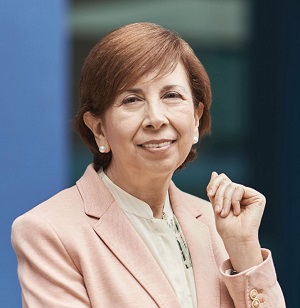Anabella Dávila contributes a chapter to Talent Management in Latin America: Pressing Issues and Best Practice, published by Routledge.
By JOSÉ ÁNGEL DE LA PAZ | EGADE BUSINESS SCHOOL
In a recently published research, EGADE Business School professor, Anabella Dávila, expands the concept of Socially Responsible Human Resource Management (SRHRM) as it is understood in Latin America.
Her work can be found in the chapter “How socially responsible HRM should be understood in Latin America”, included in the book Talent Management in Latin America: Pressing Issues and Best Practice, published by the British scientific publisher Routledge.
In an employee-context analysis, conducted through three theoretical approaches, Professor Dávila uncovers key roles for SRHRM beyond the development of employees’ attitudes and support towards the organization’s corporate social responsibility actions or employee wellbeing at work.
“The human capital paradigm requires that organizations invest in the development of their employees’ skills. However, local companies report that they face the need to build social infrastructure and develop the skills of non-employees because they offer educational opportunities to future employees. The institutional voids framework implies the challenge of labor market inefficiencies,” Dávila explained.

In Latin America, the researcher stated, human resource management promotes the strengthening of labor institutions leading a network of economic and social actors and taking advantage of the business group structure that incentivizes an internal market to access trained talent and assure decent income.
“The stakeholder perspective acknowledges the needs and demands of multiple stakeholders, including employees, families, and the community. Thus, stakeholders are also the beneficiaries of the human resource management policies and practices, and the area provides for their human development,” said the member of the Strategy and Management in Emerging Economies Strategic Focus Research Group of Tecnológico de Monterrey.
More than 13 international researchers collaborated on the book, which was edited by Jordi Trullen and Jaime Bonache, ESADE professors at Universidad Ramón Llull and Universidad Carlos III de Madrid, respectively.
You can buy the book here.